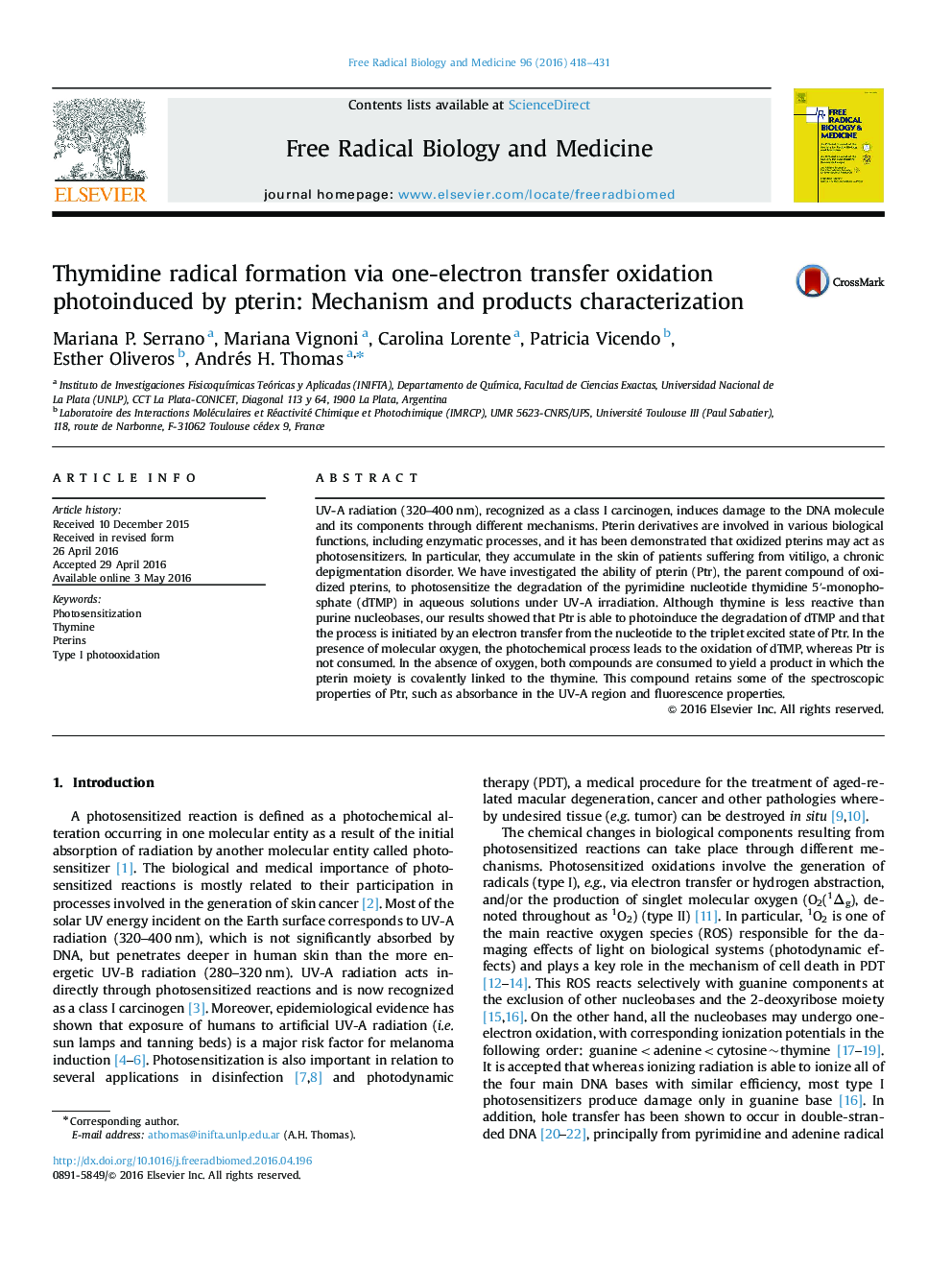| Article ID | Journal | Published Year | Pages | File Type |
|---|---|---|---|---|
| 8267883 | Free Radical Biology and Medicine | 2016 | 14 Pages |
Abstract
UV-A radiation (320-400Â nm), recognized as a class I carcinogen, induces damage to the DNA molecule and its components through different mechanisms. Pterin derivatives are involved in various biological functions, including enzymatic processes, and it has been demonstrated that oxidized pterins may act as photosensitizers. In particular, they accumulate in the skin of patients suffering from vitiligo, a chronic depigmentation disorder. We have investigated the ability of pterin (Ptr), the parent compound of oxidized pterins, to photosensitize the degradation of the pyrimidine nucleotide thymidine 5â²-monophosphate (dTMP) in aqueous solutions under UV-A irradiation. Although thymine is less reactive than purine nucleobases, our results showed that Ptr is able to photoinduce the degradation of dTMP and that the process is initiated by an electron transfer from the nucleotide to the triplet excited state of Ptr. In the presence of molecular oxygen, the photochemical process leads to the oxidation of dTMP, whereas Ptr is not consumed. In the absence of oxygen, both compounds are consumed to yield a product in which the pterin moiety is covalently linked to the thymine. This compound retains some of the spectroscopic properties of Ptr, such as absorbance in the UV-A region and fluorescence properties.
Keywords
Related Topics
Life Sciences
Biochemistry, Genetics and Molecular Biology
Ageing
Authors
Mariana P. Serrano, Mariana Vignoni, Carolina Lorente, Patricia Vicendo, Esther Oliveros, Andrés H. Thomas,
